Withdrawing from the military often signifies a significant change in a service member’s life, raising concerns about what possibilities and perks they may still be eligible for. VA (Veterans Affairs) loans are one such perk that frequently comes up in conversations.
Veteran and active-duty military personnel may now realize their goal of homeownership with VA loans, renowned for their enticing terms and advantages.
After a service member leaves the military, though, what happens to this option? Can they still use a VA loan? Come with us as we get specific.
In most cases, the answer is yes.
If you served for at least 90 days on active duty or six years of regular service in the National Guard or Reserve, you’re probably qualified for a military VA loan. You can use this benefit to buy a house even after you get out of the military.
Understanding VA Loans
Understanding the fundamentals of VA loans is crucial before digging into the requirements for eligibility after military service.
VA loans assist veterans, active-duty military personnel, and qualified surviving spouses in buying, building, or refinancing a residence.
The VA’s support, which enables lenders to give qualified applicants advantageous conditions, distinguishes VA loans from traditional mortgages.
Using a VA Loan After You Leave the Military
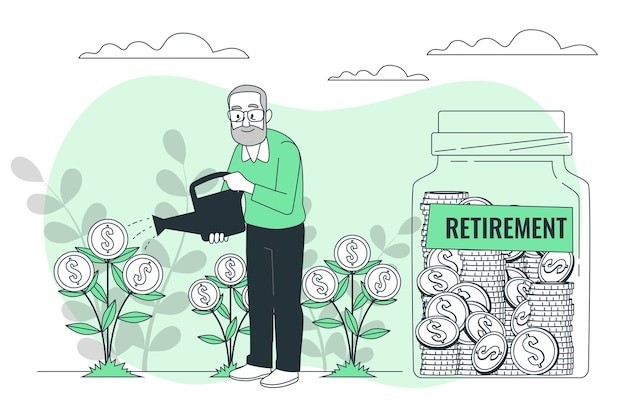
In a typical year, hundreds of thousands of military members and veterans use VA loans to either purchase or refinance a house. Many of those borrowers use VA loans after they get out of the military, enjoying the benefits that they earned while serving.
That’s the first and most important takeaway from this article. You do not have to currently be serving in the military in order to use a VA loan. VA guarantees this benefit long after you leave the military, as long as you meet the essential VA loan prequalification criteria.
VA loans are a lifetime benefit for military service members, veterans, and certain qualifying spouses. Once you’ve checked the boxes for basic program eligibility, you can use VA loans repeatedly for as long as you want—even if it’s 20 years after you leave the service.
Let’s start by reviewing the basic VA minimum property requirements. If you meet one of the classifications listed below, you are probably eligible for a VA loan even after you leave military service.
- Active Duty: You served for at least 90 days continuously, without a break in service.
- National Guard or Reserve: You served for at least six years or for at least 90 days of active-duty activation.
(Note: The surviving spouses of veterans who died while serving can also be eligible for the VA loan military, but that’s beyond the scope of this particular article.)
This is just a basic overview of the eligibility requirements. For a more thorough explanation, you can refer to the VA.gov website.
Eligibility Criteria for VA Loans After Military Service
The following requirements must be satisfied in order for you to be eligible for a VA loan after leaving the military:
1. Length of Service: Requirements for the VA-guaranteed loan vary by state, but nearly all of them hold to the same rule that veterans must have served at least a specific period of time to become eligible.
For those whose service is undertaken during peace, the minimum service requirement is normally 181 days of consecutive service. Nonetheless, the cases can be different for those who fought in the war if it comes to their needs.
2. Discharge Status: Your military discharge status can also determine your eligibility for a VA loan. Typically, certain conditions have to be met, such as an honorable discharge, for a veteran to access the VA home loan program.
On the other hand, there are some particular cases where those with this other kind of discharge, such as general discharges under honorable conditions, are excluded.
3. Certificate of Eligibility: To apply for your VA loan, you will need to get a Certificate of Eligibility from the VA.
The certificate will vouch for your entitlement to VA loan benefits and is usually issued through the eBenefits portal or by submitting an application form directly to the VA.
Honorable Versus Dishonorable Discharge

As previously stated, veterans who satisfy the prerequisites for qualifying can apply for a VA loan upon their discharge from the armed forces. However, another crucial distinction that has to be considered in this case relates to the type of discharge you received.
Generally, VA loans are only available for active duty, National Guard, and Reserve members who are honorably discharged. Those who have been discharged for “less than honorable” reasons are typically considered to be ineligible for this home loan program.
As it states on the Department of Veterans Affairs website:
“If you’ve received an other than honorable, bad conduct, or dishonorable discharge, you may not be eligible for VA benefits.”
A former military member might be able to apply for a “discharge upgrade” through the Department of Veterans Affairs to restore some of their VA benefits. But this is the exception rather than the rule.
In most cases, former service members with dishonorable or bad conduct discharges cannot use a VA loan after leaving the service.
You should be set to depart if your discharge was granted on an honorable basis and you fulfill the previously stated time-in-service criteria. In such instances, following your military service, you can apply for a VA loan. It might potentially be used again and again over time.
How to Apply for a VA Loan After Serving
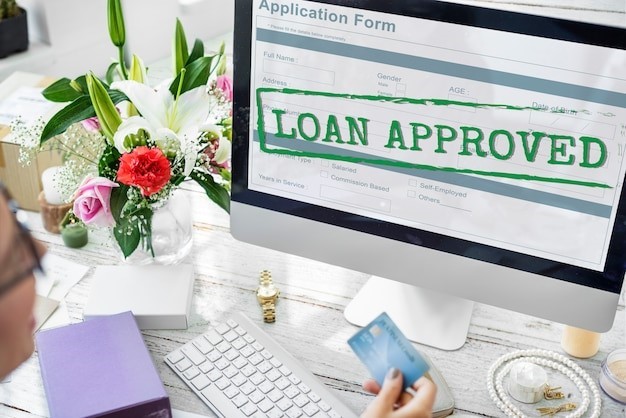
So you’ve left the military, got a job in the civilian sector, and want to buy a home using a VA home loan. How do you get started? What steps do you need to take to get the ball rolling?
For the most part, the VA loan rates and Navy federal VA loan rates are the same for those still in the military or Navy and those who have gotten out.
However, the one big difference is that those who have left the military no longer have access to a personnel officer, yeoman, or adjutant. So, they have to initiate the VA mortgage process on their own, perhaps with the help of a mortgage lender.
Here’s how to apply for a VA loan after getting out of the military:
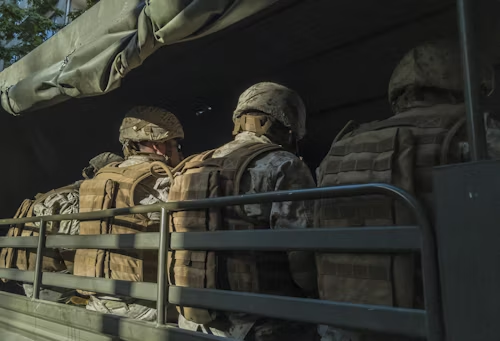
1. Determine Eligibility: Not all veterans qualify for VA loans. Check the VA website or consult with a lender to determine your eligibility based on your service history and discharge status.
2. Get Your COE: Afterwards, you will have to get a Department of Veterans Affairs Certificate of Eligibility. Your eligibility for a VA loan upon your discharge from the service is demonstrated by this paperwork. Utilizing your separation documents (DD-214), you may make a request via the VA.gov portal. You may also ask for it on behalf of a mortgage lender.
3. Find an Approved Lender: Many, but not all, mortgage lenders offer this type of loan. Look for a lender that’s experienced in VA loans, knows about VA mortgage loan rates, and is familiar with the specific requirements of this program.
4. Gather Your Documents: You’ll need various documents, including your DD-214 (separation document), COE, pay stubs, bank statements, tax returns, and photo ID. Your lender should provide you with a list of required documents. Many of them can be submitted electronically.
5. Submit an Application: Borrowers applying for a VA loan for land typically use the Uniform Residential Loan Application or URLA. You might start this application when you get pre-approved for a loan and then finalize it once you’ve found a home and made an offer. But this can vary.
Post-Military Career and Financial Stability
Though meeting the basic criteria is important, veterans should keep their post-military career and financial stability in mind while making the VA loan eligibility.
Loans undergo brief scrutiny involving the background of employment, credibility, and income stability.
Hence, veterans moving from military service to civilian life need to and should endeavor to keep their financial profile better than predicted to achieve the success necessary in obtaining a VA loan.
Utilizing VA Loan Benefits Wisely
Former service members find the choice of homeownership interesting after leaving the service, and VA loans are an excellent alternative to other financing options.
However, the process should be well thought out, and an understanding of what is involved with homeownership is necessary.
Veterans, therefore, should begin by sensibly looking into their finances, housing alternatives, and issues such as location, condition of the house, and how comfortable they will manage to keep it in the long run.
Besides, veterans should take advantage of the resources they have at their disposal, those being VA underwriter lenders and housing counselors who can steer them through the house-buying process.
These benefits showcase the VA’s known loan features, therefore helping the veterans make informed decisions that will align with their homeownership plans.
In conclusion, yes, you could use a VA loan after leaving the military if you were honorably discharged and meet the minimum service requirements mentioned above. If you are eligible for this program, you owe it to yourself to explore the many benefits it can provide!

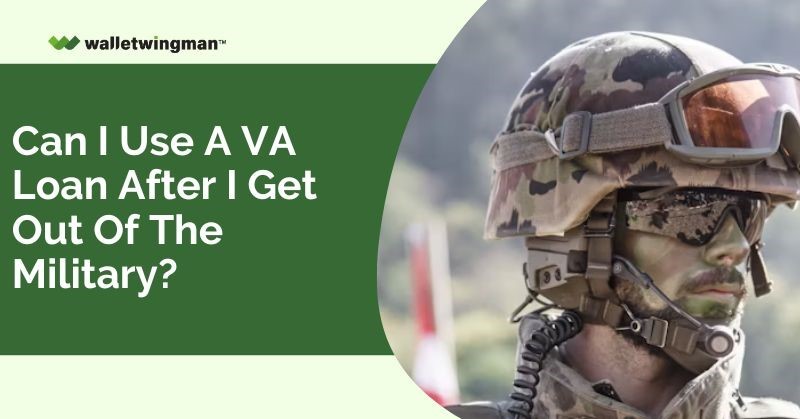
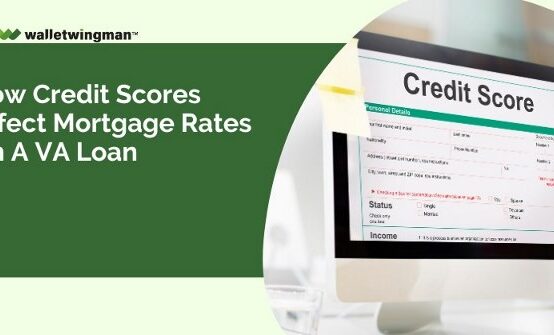 How Credit Scores Affect Mortgage Rates on a VA Loan
How Credit Scores Affect Mortgage Rates on a VA Loan 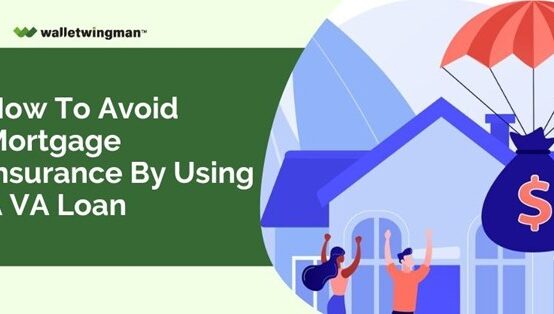 How to Avoid Mortgage Insurance By Using a VA Loan
How to Avoid Mortgage Insurance By Using a VA Loan 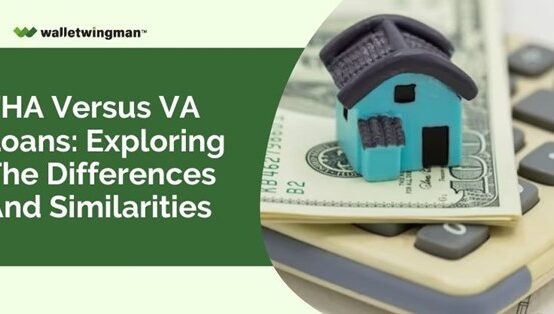 FHA Versus VA Loans: Exploring the Differences and Similarities
FHA Versus VA Loans: Exploring the Differences and Similarities 